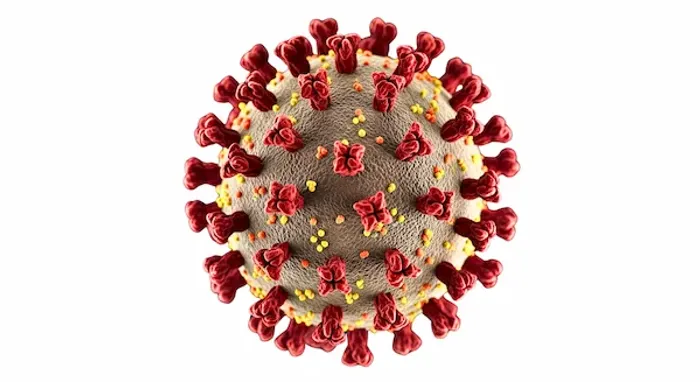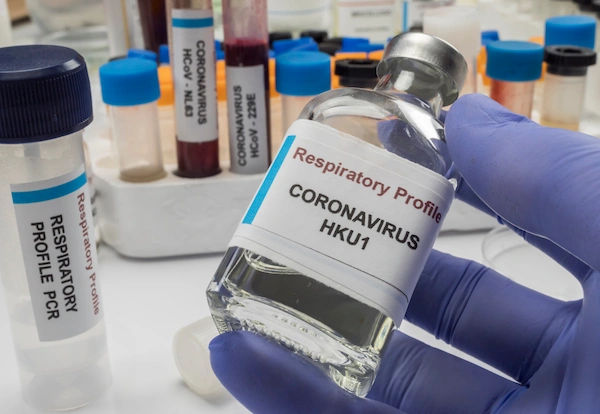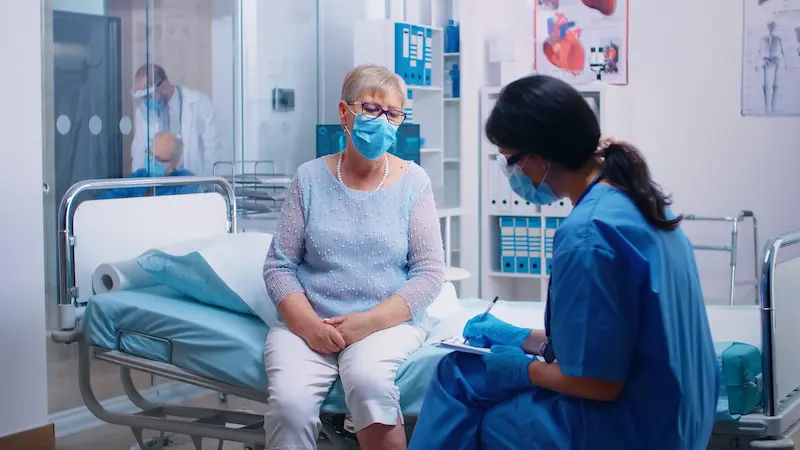What Leads To Signs Of Coronavirus Treatments Types
Explore the common signs and symptoms of coronavirus and the factors that lead to their development. Learn about the various types of coronavirus treatments, from at-home care to prescribed medications.

Written by Dr. Mohammed Kamran
Reviewed by Dr. Rohinipriyanka Pondugula MBBS
Last updated on 13th Jan, 2026

Introduction
Navigating the world of coronavirus treatments can feel overwhelming. With news of various pills, infusions, and medications, it's natural to wonder what options are available and, more importantly, how you can tell if they are effective. This article breaks down the primary types of coronavirus treatments, explaining who they are for and detailing the signs of improvement you can realistically expect. Understanding the different categories—from powerful antivirals that stop the virus in its tracks to supportive care you can manage at home—empowers you to have informed discussions with healthcare providers. We will explore the mechanisms of these treatments, their intended use cases, and the key indicators that signal your body is responding positively. Whether you're seeking information for yourself or a loved one, this guide will provide clarity on the path from diagnosis to recovery. Remember, the most crucial first step is always to consult a medical professional for a personalized diagnosis and treatment plan.
Understanding the Goal: How Coronavirus Treatments Work
Coronavirus treatments don't follow a one-size-fits-all approach. They are strategically designed to combat the virus at different stages of infection. Essentially, they fall into two main categories: attacking the virus itself and managing the body's response to it.
Antiviral Medications: Stopping the Virus from Multiplying
Antiviral drugs are like specialized soldiers deployed to halt the enemy's advance. They work by interfering with the virus's ability to replicate inside your cells. Drugs like Paxlovid (nirmatrelvir and ritonavir) and Remdesivir target specific enzymes the virus needs to make copies of itself. By slowing down or stopping replication, these treatments reduce the viral load in your body, giving your immune system a critical advantage. This is why they are most effective when administered early in the course of the illness, typically within the first 5-7 days of symptoms.
Immunomodulators: Calming an Overactive Immune Response
Sometimes, the most significant damage during a coronavirus infection comes not from the virus itself, but from the body's own inflammatory response. In severe cases, the immune system can go into overdrive, causing a "cytokine storm" that damages lungs and other organs. Immunomodulators, such as the corticosteroid Dexamethasone, work by suppressing this excessive inflammation. They don't fight the virus directly but are crucial for preventing life-threatening complications in hospitalized patients who require oxygen support.
Supportive Care: Managing Symptoms at Home
For mild cases, the best coronavirus treatment is often supportive care. This doesn't target the virus but focuses on relieving symptoms, keeping you comfortable, and supporting your body’s natural healing processes. This includes rest, hydration, and over-the-counter medications to reduce fever and aches.
Consult Top Specialists
A Guide to Common Coronavirus Treatment Types
Here’s a closer look at the specific treatments you might encounter, their intended recipients, and what successful treatment looks like.
Prescription Antiviral Pills (e.g., Paxlovid, Molnupiravir)
These oral medications have revolutionized outpatient care for COVID-19, offering a convenient way to reduce the risk of severe illness.
Who are they for? These are prescribed for individuals with mild-to-moderate COVID-19 who are at high risk of progressing to severe disease. This includes older adults and people with underlying conditions like diabetes, heart disease, or weakened immune systems. A key requirement is that treatment must start within 5 days of symptom onset.
Signs and Timeline of Improvement: How can you tell if COVID antiviral treatment is working? You likely won't feel an immediate effect. Instead, the primary sign of success is that your symptoms do not worsen. Over the 5-day course of treatment, you should observe a gradual improvement.
Days 1-2: Fever may break, and energy levels might start to slowly increase.
Days 3-5: Symptoms like cough, sore throat, and body aches should become less severe.
The most significant sign of effectiveness is avoiding hospitalization. If your condition does not improve after trying these methods, book a physical visit to a doctor with Apollo24|7 for a re-evaluation.
Intravenous (IV) Antiviral Treatments (e.g., Remdesivir)
Remdesivir is an antiviral administered through an IV drip in a hospital or infusion center.
Who are they for? It is used for hospitalized patients requiring supplemental oxygen. It is also approved for certain high-risk outpatients with mild-to-moderate disease, serving as an alternative if oral antivirals cannot be used.
Signs and Timeline of Improvement: In a hospital setting, success is measured clinically. Doctors look for:
Improvement in oxygen saturation levels, reducing the need for supplemental oxygen.
Stabilization of vital signs (heart rate, respiratory rate).
A shorter overall recovery time. The standard course is 3 days for outpatients and 5-10 days for inpatients.
Anti-Inflammatory Drugs (e.g., Dexamethasone)
These are powerful tools used specifically for the inflammatory phase of severe COVID-19.
Who are they for? Dexamethasone is reserved for hospitalized patients who require supplemental oxygen or mechanical ventilation. It is not recommended for patients with mild disease, as it can suppress the immune system when it's still needed to fight the virus.
Signs and Timeline of Improvement: The effectiveness of dexamethasone is seen in a reduced risk of death. Medical staff monitor for:
A reduction in inflammatory markers in blood tests (like C-reactive protein).
Improved lung function, allowing for a reduction in oxygen support.
Overall clinical stability. The timeline for this coronavirus treatment can vary but is typically administered for up to 10 days.
At-Home Care: Symptom Management for Mild Cases
Most people with COVID-19 will experience a mild illness that can be managed at home. The goal here is comfort and monitoring.
Over-the-Counter (OTC) Medications
Medications like acetaminophen (Tylenol) or ibuprofen (Advil) can effectively manage fever and body aches. Decongestants or cough suppressants can also provide relief. It's essential to use these as directed and consult a pharmacist or doctor if you have questions about interactions with other medications.
Home Remedies and Supportive Measures
Never underestimate the power of supportive care. Key steps include:
Rest: Your body needs energy to fight the infection.
Hydration: Drink plenty of fluids like water, broth, and electrolyte solutions.
Nutrition: Eat nourishing foods to support your immune system.
Monitoring: Use a pulse oximeter to track your blood oxygen levels. A reading consistently below 92% is a red flag to seek immediate medical attention.
Recognizing When to Seek Advanced Medical Care
Knowing the warning signs of progression is critical. Seek immediate medical care if you or a loved one experiences:
Trouble breathing or shortness of breath at rest.
Persistent pain or pressure in the chest.
New confusion or inability to wake up or stay awake.
Pale, gray, or blue-colored skin, lips, or nail beds, depending on skin tone.
If symptoms persist beyond two weeks or you experience concerning new ones, consult a doctor online with Apollo24|7 for further evaluation. They can assess your situation and advise if an in-person visit is necessary.
Quick Takeaways: Key Points to Remember
Timing is Critical: Antiviral treatments are most effective when started early, within days of symptom onset.
Treatment is Tailored: The right coronavirus treatment type depends on your symptom severity, risk factors, and how long you've been sick.
Success Looks Different: For antivirals, success is often the prevention of worsening symptoms. For anti-inflammatories, it's the reduction of life-threatening inflammation.
Home Care is Foundational: For mild cases, rest, hydration, and OTC symptom relief are the primary treatments.
Monitor Your Symptoms: Keep a close watch on your breathing and energy levels. Any sign of deterioration warrants immediate medical consultation.
Consult a Professional: Always work with a healthcare provider to determine the best course of action for your specific situation.
Consult Top Specialists
Conclusion
The landscape of coronavirus treatments has expanded significantly, offering hope and effective interventions for people at all stages of infection. From convenient oral antivirals that can be taken at home to life-saving immunomodulators used in ICUs, these treatments target the virus and its complications in specific ways. Understanding the types of treatments available and the signs that indicate they are working empowers you to be an active participant in your healthcare journey. Recovery is a process, and recognizing the positive indicators—whether it's a fading fever or stabilized oxygen levels—can provide immense reassurance. The most important takeaway is to act early, communicate openly with your doctor, and never hesitate to seek professional medical advice when needed. Your health and well-being are the ultimate priorities.
Consult Top Specialists

Dr. Rajib Ghose
General Physician/ Internal Medicine Specialist
25 Years • MBBS
East Midnapore
VIVEKANANDA SEBA SADAN, East Midnapore

Dr. B Sivananda Reddy
General Physician
12 Years • D M ( OSMANIA MEDICAL COLLEGE, KNRUHS ) MD ( KASTURBA MEDICAL COLLEGE , MAHE) MBBS ( PESIMS&R, NTRUHS).
Secunderabad
Apollo Hospitals Secunderabad, Secunderabad
Dr Rakesh Ram
General Physician/ Internal Medicine Specialist
4 Years • MBBS, MD (INTRNAL MEDICINE)
Secunderabad
Apollo Hospitals Secunderabad, Secunderabad

Dr. Ajay K Sinha
General Physician/ Internal Medicine Specialist
30 Years • MD, Internal Medicine
Delhi
Apollo Hospitals Indraprastha, Delhi
(200+ Patients)

Dr. Ramya Hari
General Practitioner
18 Years • Medical Head & Family Physician, DG Shipping Approved Doctor, Panel Physician - UK Visa Medicals
Chennai
Apollo Medical Centre Kotturpuram, Chennai
More articles from Coronavirus disease
Frequently Asked Questions
1. What is the most effective coronavirus treatment available today?
There isn't a single 'most effective' treatment for everyone. Effectiveness depends on the individual's health status, the severity of their illness, and how quickly treatment is started. For high-risk outpatients, antiviral pills like Paxlovid are highly effective at preventing severe disease. For hospitalized patients on oxygen, dexamethasone has been proven to save lives.
2. How long does it take for Paxlovid to start working?
Most people begin to feel improvement within 1-3 days of starting the 5-day course. The key sign it's working is that your symptoms stabilize and begin to gradually improve rather than getting worse.
3. What are the signs of a rebound COVID infection after treatment?
Some people experience a 'rebound,' where symptoms return or test positivity recurs 2-8 days after finishing treatment and feeling better. Signs are similar to the initial illness (e.g., return of fever, cough). This is usually mild, but it's important to isolate and monitor your symptoms. If they become severe, contact your doctor.
4. Are over-the-counter medications enough to treat COVID-19?
For the vast majority of healthy individuals with mild cases, yes. OTC medications like acetaminophen can effectively manage symptoms like fever and aches. However, they do not fight the virus itself. High-risk individuals should consult a doctor about prescription antiviral medications for a more proactive approach.
5. Can I get a coronavirus treatment without a positive test?
No. Prescription treatments like antivirals are only authorized for individuals with a confirmed positive COVID-19 test result. A diagnosis is necessary to ensure the treatment is appropriate and to rule out other illnesses with similar symptoms.

